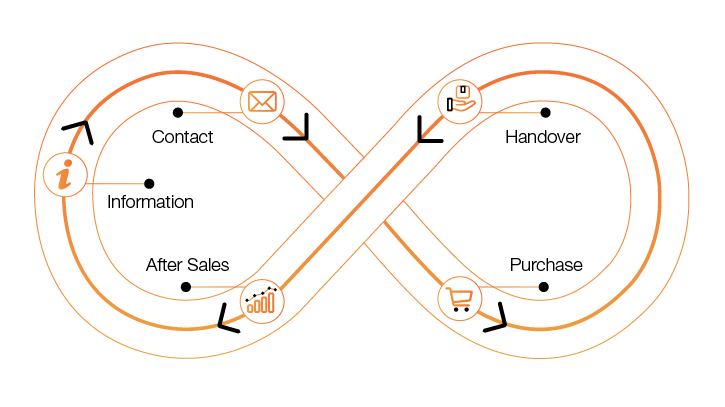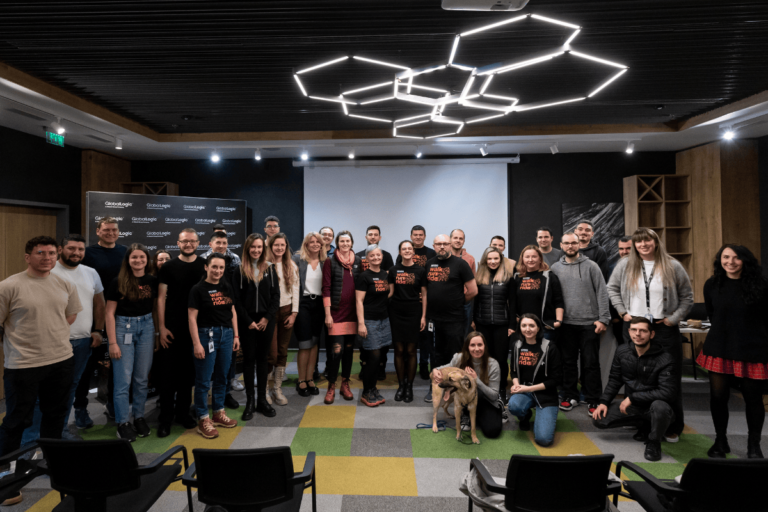- Services
Technology Capabilities
Technology Capabilities- Product Strategy & Experience DesignDefine software-driven value chains, create purposeful interactions, and develop new segments and offerings
- Digital Business TransformationAdvance your digital transformation journey.
- Intelligence EngineeringCreate high-value products faster with AI-powered and human-driven
- Software Product EngineeringCreate high-value products faster with AI-powered and human-driven engineering.
- Technology ModernizationTackle technology modernization with approaches that reduce risk and maximize impact.
- Embedded Engineering & IT/OT TransformationDevelop embedded software and hardware. Build IoT and IT/OT solutions.
- Industries
- GlobalLogic VelocityAI
- Insights
White PapersSeptember 17, 2024Diana SocaciuElevating Romanian Tourism with GlobalLogic: Apuseni App
The innovative banking apps, such as the one we'll explore in this case study, succeed ...
 Case StudiesGlobalLogic
Case StudiesGlobalLogicFrom Legacy to Leading-edge: A Global Software Leader’s ...
Discover how GlobalLogic’s AI-powered solutions helped a global software leader migrate...

- About
Published on January 10, 2024Digital Transformation and the Future of Car Retail in the Automotive Industry
View all articlesVencel Biro.NET Competency Head | EngineeringShareRecommended authorsSenior Vice President & General Manager, Healthcare & LifesciencesPrincipal, Financial Services Lead at MethodView all authorsGroup Vice President and Head of UK&I and Emerging Markets
Industry Leader, Financial Services and Consumer, EMEALet's start engineering impact together
GlobalLogic provides unique experience and expertise at the intersection of data, design, and engineering.
Get in touchAI GovernanceMobilityThe Case of AEM for the Automotive Industry of Tomorrow
The second industrial revolution that occurred during the late 19th and early 20th century brought with it the initial invention of the automobile. Since that time, cars have become commonplace in our lives, and the automotive industry has flourished, with Statista predicting global growth to be just under $9 trillion by 2030.
However, thanks to changing consumer preferences, the automotive industry is undergoing a shift towards becoming experience-driven rather than product-driven. McKinsey states that digital channels are becoming more critical in the automotive-purchase experience with over 80% of survey respondents citing the use of online sources to help make a decision.
With these changing consumer preferences, companies in the automotive industry need to alter their approach to customers and switch their focus from product to experience if they want to remain competitive. Proper attention to software development can help them make the transition.
Table of Contents
- Digital Transformation in the Automotive Industry
- Leveraging AEM for the Automotive Industry
- The Need for Agile Automotive Software Development
Digital Transformation in the Automotive Industry
In a sea of changing trends, the future of automotive retail requires brands to do more than just move online. Brands need to focus on being customer-centric and embrace the multichannel journey prevalent today.
As McKinsey also pointed out, OEMs need to understand that buyer journeys will vary from touchpoint to touchpoint. Changing customer expectations will see 10-25% of global automotive sales happen online by 2025.
To facilitate this automotive digital transformation, brands need modern, reliable and secure websites that appeal to the end-user and support the current car buying process. This, in turn, creates a need for modern technologies that make building these digital experiences easier.
Potential customers don’t just need a website to communicate corporate information. Instead, they need a completely immersive experience that comes personalized to their needs.
The modern automotive digital experience needs to enable sales and provide answers to consumer questions, an omnichannel experience that enables connection across multiple digital touchpoints.
Keep in mind that digital transformation affects not only the buying process but the entire car ownership experience. Therefore, OEMs must shift their approach to marketing and the way they build products as well.
Effective software development is crucial at this stage. The right tools and technologies can simplify the process, making it easier and more efficient to build the digital products the automotive industry needs.
Leveraging AEM for the Automotive Industry
One framework automotive software development teams use is Adobe Experience Manager (AEM).
Though one of several CMS options on the market, we believe it offers the flexibility to influence the entire car ownership experience. AEM’s capabilities as a CMS and digital asset management platform enable it to provide relevant, personalized information to buyers at every stage of the customer journey.
“The rising importance of the customer experience goes hand-in-hand with changing consumer behaviors in the digital era. The emergence of technology, especially mobile and smart devices, the rise of e-commerce being adopted by the general public, and prevalent social media communication is fundamentally transforming when, where, how, and why people interact with, search for, buy, and use products and services. This also holds true in the automotive industry.” – Deloitte Digital – Driven by Experience
According to Deloitte, the most relevant areas of the customer journey within the automotive industry are:
- The information-gathering phase when customers first begin to research in light of an upcoming purchase;
- The contact phase which includes initial contacts with a dealer;
- The purchase phase;
- The handover phase when they await their new vehicle;
- And the after sales phase, which includes maintenance, repairs and continued contact with the vendor.

“Next-generation customer journey: Infinity loop” – Deloitte’s Automotive Customer Experience Study
In each of these phases, pain points include a lack of guidance about the next steps and a lack of personalization. By creating the right digital experiences, the automotive industry can alleviate many of these pain points by providing the right content at the right time.
Some of the key features of AEM which make it especially useful for the automotive industry are Adobe Analytics, Forms, and Managed Services.
Gain More Insights
The digitalization of the automotive buying process requires OEMs to take a data-driven approach to their marketing and product development. To provide the optimum experience for their customers, brands need to capture and aggregate data to understand visitor behavior across digital channels.
Adobe Analytics provides real-time analytics and detailed segmentation across multiple channels with the help of APIs that allow your customer data to be integrated into other applications and used to shape business decisions.
Reduce Customer Friction
Purchasing a car from a dealership usually requires customers to fill out endless forms. With the digitalization of the industry, these forms can be moved online.
However, to ensure a positive customer journey, brands need to adjust how these forms are presented and reduce any friction that can arise. AEM Forms provides the answer to that friction with responsive forms and engaging communication that enhances the digital experience.
Experience the Cloud
Digital transformation in the automotive industry wouldn’t be complete without embracing cloud technology to reduce time to market and foster innovation. Another feature of AEM which provides tremendous value for OEMs’ digital presence is managed services for the cloud. By leveraging the cloud, OEMs can scale as required, cope with additional traffic, and maintain high-quality performance of their digital experiences, thus ensuring customer satisfaction.
The Need for Agile Automotive Software Development
Experience management is necessary to cope with the digitalization of the automotive industry, but these experiences and the tools used to create them must also be complemented with agile software development.
Using agile practices for automotive software development is essential today, as both the hardware and software in modern cars must be in sync to cope with the following emerging trends:
Electrical Vehicles (EV)
EV sales increased by double-digit percentages in 2019 in almost every European country, according to McKinsey. Germany and the Netherlands contributed with 44% percent to the overall EV-market growth in Europe. In Q1 of 2020, Germany remained the top market in Europe for electric vehicles with 52.800 units sold.
AI for Autonomous Driving
AI and machine learning are set to play a significant role in several industries, none more so than the automotive industry. To support this trend requires knowledge of integrated technologies and an ability to unlock the capabilities of sensors and navigation systems.
IoT for Connected Cars
The internet of things is already impacting the automotive industry and providing essential data that can be leveraged to create better digital experiences, but it requires customized software development to become a reality.
The automotive industry will continue to evolve in 2021 as it feels the impact of new digital trends including a renewed focus on online activity, a need for recurring revenue streams, and a need to embrace strategic partnerships.
Automotive software development is a pillar that companies in the industry will need to hang their hat on if they want to capitalize on these trends, maximize the digital transformation, and improve the customer experience.
 How can I help you?
How can I help you?
Hi there — how can I assist you today?
Explore our services, industries, career opportunities, and more.
Powered by Gemini. GenAI responses may be inaccurate—please verify. By using this chat, you agree to GlobalLogic's Terms of Service and Privacy Policy.


